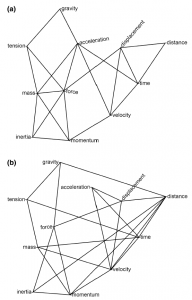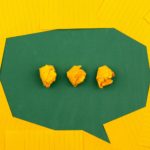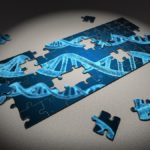A few years back, in conjunction with conversations with colleagues, I made the concerted effort to create re-testing opportunities for all my assessments in all my classes. It quickly became apparent that despite my concern that I would be overwhelmed in marking additional assessments, few students took me up on the offer to improve their learning. I began to consider my approach to assessment, my approach to my teaching, and my students’ motivation in their course work. It also became apparent that of the few that attempted to reassess, even fewer were successful in improving their learning; most seeming only marginal gains. I was left again to wonder why so many of my students have difficulty showing learning progress on necessary skills or point of understanding with repeated attempts.
Around the same time, I was engaged in some professional development sessions on growth mindset, based on Carol Dweck’s book, Mindset: The New Psychology of Success, which we had read as a school. During these few days, the presenters instructed us to record our thoughts and progress notes on the application of our discussions on our classroom practice. This was the first time (I can remember) ever recording my professional thoughts for later viewing – I was purposefully reflecting.
I enjoyed it. I found my thoughts were clearer, my connections more robust, and I was able to check back the next day to remind myself of the epiphanies I had recorded. I began to recognize that I am constantly and subconsciously reflecting, just sporadically and non-linearly: on personal interactions, emotions, physical sensations, goals, priorities, my family, my job, my life. These inner-conversations always involved aspects of wondering, considering, comparing, contrasting, predicting, questioning (I could go on) – which is also why I found one of our first autoethnographic readings, Research Diary: A Tool for Scaffolding by Engin (2011) so refreshing – it was a scholarly article that supported with similarity of thought what was taking place in my mind daily. The main difference I noted was that my frequent reflections are not recorded and so I don’t always reassess and affect change. Ultimately, my practice continues to get better because I reflect and challenge myself often, but I couldn’t help thinking that with more explicit and deliberate reflection, as Engin noted, I may have moved forward at a quicker pace.
I want to investigate the use of various types of reflective practice and the impact on student achievement, motivation, and knowledge building.
I started, in the little free time I have between coursework, family obligations and my desire to get solid sleep, to undertake a basic Google search for “student reflection.” My online search lead me first to Chapter 12: Learning Through Reflection from the book Learning and Leading with Habits of Mind, from the Association for Supervision and Curriculum Development (ASCD, 2008). While this wasn’t a scholarly article with citations and research, it did provide some general strategies and rational for improving reflective practice in class. Most important to me was the discussion of how rarely students are asked to reflect on their learning, the difficulties in starting, and how superficial and quick student responses are with no scaffolding or prior teaching – for reflection to be purposeful, it must be ongoing, and consistently modeled and practiced.
My next concern was to better understand the distinction between metacognition and reflection. A quick Google hit lead me to a teacher resource page, Cultivating Reflection and Metacognition, from the Sweetland Centre For Writing at the University of Michigan (UM, n.d.). It allowed me to better understand the distinction between these similar terms – metacognition as a type of reflective practice – and again provided some general pedagogical tips for getting started.
With a foundation beneath me, I entered the library databases, scanned for something relevant and recognizable, and found this:
Effects of conceptual, procedural, and declarative reflection on students’ structural knowledge in physics Trumpower & Sarwar (2015)
With a quick look over the paper’s contents, I took note of some points: the content fit my subject specialty, as I am a math and science teacher in trade and by academic history; the context of the study made sense – I had actual experience teaching the physics units used in the study data (waves, motion, work and power); it utilized understandable quantitative methods; and the qualitative component was structured in a way that made it less likely to be misinterpreted (in my opinion). This is exactly the kind of study I wanted to see – dry, scientific and quantitative, in a field I can relate too, and it finished with a tremendous quote:
“(R)eflection can be done well or poorly, successfully or unsuccessfully, but it is always a productive experience.”
(Trumpower & Sarwar, 2015, p.188)
A quick overview: Trumpower & Sarwar (2015) conducted a mixed methodological study of 169 students across 6 Grade 11 physics courses. Participants were tasked with completing a rating-scale test on concept relatedness, which was then converted into a network representation called a Pfnet, to illustrate student structural knowledge (see Fig 1). Representations were then statistically analyzed against a referent network, creating a network similarity index (NSI) value, and each participant was given descriptive feedback, including reflective prompts, based on their results. Participants then wrote reflections regarding the misconceptions noted in the feedback, and a similar ratings-scale test was administered 7 days later. Reflections were categorized as either declarative, procedural or conceptual in nature. In analyzing the quantitative NSI values against the category of reflection produced, it was concluded that all forms of reflective work corresponded to improvements in achievement on the second test; however, students who were conceptually reflective saw the most positive effect from their reflection.
Figure 1: (a) the referent PFnet (b) an example of a student Pfnet.
Adapted from Effects of conceptual, procedural, and declarative reflection on students’ structural knowledge in physics by Trumpower & Sarwar, 2015, Education Tech Research Dev, 63, p.193. Copyright 2015 by the Association for Educational Communications & Technology.
Despite all of the wonderful data, this study was the wrong kind of information for me. It represented the most sterile research example of how reflection could affect student learning (I’m beginning to think I lean towards auto/ethnographic methods). I couldn’t help but think of all the pedagogical missteps the authors overlooked – which were partially addressed in the studies discussion section – and the ways I could take what they had found and extend it using pre-teaching, cooperative reflection, open-ed resources, sharing and creating within a professional learning network…and on and on. However, that is the old me – moving forward with no real plan because “(t)his feels like the best thing for helping my students.” More importantly, what this first study did was stoke my passion for finding more relevant and supportive research, to expand my understanding of the data supporting reflective practices, and push me forward in an informed and prepared manner – as much as anyone can ever really be prepared for teaching.
To finish, I am left with the following:
Research Topic
- Reflective Practice
Research Problem
- Addressing STEM achievements for all students
Research Purpose
- To identify the effects of reflective practice on student achievement in STEM
Specific Research Question(s)
- How does reflective frequency affect student achievement?
- Is the type of reflective medium (written, verbal, video, audio) important in shaping the effect?
- Does cooperative reflection have a stronger effect on achievement than individual reflecting?
- How does formative feedback about the reflective practice improve future reflections?
In addition to hopefully answering some or all of these research questions, I still have to consider reflective practices from a holistic perspective with the following ideas: the technological tools used; privacy and ownership considerations; how to fit it into my course practice; how gender may play a role in reflective practices; how to differentiate the practice for every student.
To start my journey, I have began accumulating resources to digest and have listed a small selection from the research I have found interesting.
I have chosen to list these three research studies (of the 30-35 I have collected and am still working through), as they cover a breadth of possible rationale behind using reflective practices with students: learning from errors, improving motivation and achievement, uncovering gaps in learning:
- Secondary School Students Learning from Reflections on the Rationale Behind Self-Made Errors: A Field Experiment
- The Effects of Student Reflection on Academic Performance and Motivation
- Resolving Misconceptions Through Student Reflections
A list of websites/articles/blogs to explore:
- https://georgecouros.ca/blog/
- https://www.cultofpedagogy.com/blog/
- https://couros.ca/blog/
- Brock University – Centre for Pedagogical Innovation
- https://www.edutopia.org/article/frameworks-reflection
- https://www.edutopia.org/article/treating-reflection-habit-not-event
- https://www.edutopia.org/blog/digital-portfolios-art-of-reflection-beth-holland
- https://www.edutopia.org/article/putting-students-charge-their-learning
- https://www.cultofpedagogy.com/sown-to-grow/
- https://www.kqed.org/mindshift/38619/what-meaningfuI-reflection-on-student-work-can%C2%AD%20do-for-learning
- https://www.kqed.org/mindshift/44227/when-kids-have-structure-for-thinking-better%C2%AD%20learning-emerges
- https://ww2.kqed.org/education/2017/05/16/8-ways-for-students-to-reflect-on-their-learning/
- http://www.ascd.org/professional-development/webinars/peer-coaching-webinar.aspx
- http://www.ascd.org/ascd-express/vol13/1316-johnson.aspx
- http://www.ascd.org/ascd-express/vol6/625-murphy.aspx
- JFF (Jobs for the Future) – Self-Assessment: Reflections from Students and Teachers
Reference List:
Cavilla, D. (2017). The Effects of Student Reflection on Academic Performance and Motivation. SAGE Open, 7. Retrieved from https://doaj.org
Cultivating Reflection and Metacognition | U-M LSA Sweetland Center for Writing. (n.d.). Retrieved July 10, 2019, from https://lsa.umich.edu/sweetland/instructors/teaching-resources/cultivating-reflection-and-metacognition.html
Ed.D, M. E. (2011). Research Diary: A Tool for Scaffolding. International Journal of Qualitative Methods, 10. Retrieved from https://doaj.org
Effects of conceptual, procedural, and declarative reflection on students’ structural knowledge in physics | SpringerLink. (n.d.). Retrieved July 9, 2019, from https://link-springer-com.ezproxy.library.uvic.ca/article/10.1007%2Fs11423-015-9368-7
Heemsoth, T., & Heinze, A. (2016). Secondary School Students Learning From Reflections on the Rationale Behind Self-Made Errors: A Field Experiment. The Journal of Experimental Education, 84(1), 98–118. https://doi.org/10.1080/00220973.2014.963215
Learning Through Reflection. (n.d.). Retrieved July 9, 2019, from http://www.ascd.org/publications/books/108008/chapters/Learning-Through-Reflection.aspx
Tawde, M., Boccio, D., & Kolack, K. (2017). Resolving Misconceptions Through Student Reflections. Journal of College Science Teaching, 47(1), 12–17. Retrieved from https://www.jstor.org/stable/44580868
PHOTO: Pixabay – free for commercial use








azithromycin 500 mg coupon
March 1, 2020 — 8:31 am
Its like you read my mind! You seem to grasp a lot about this, suchh as you wrote the book in it
or something. I think that you just can do with some percent
to power tthe message huse a bit, but other than that, that
is fantastic blog. A great read.I’ll definitely be back.